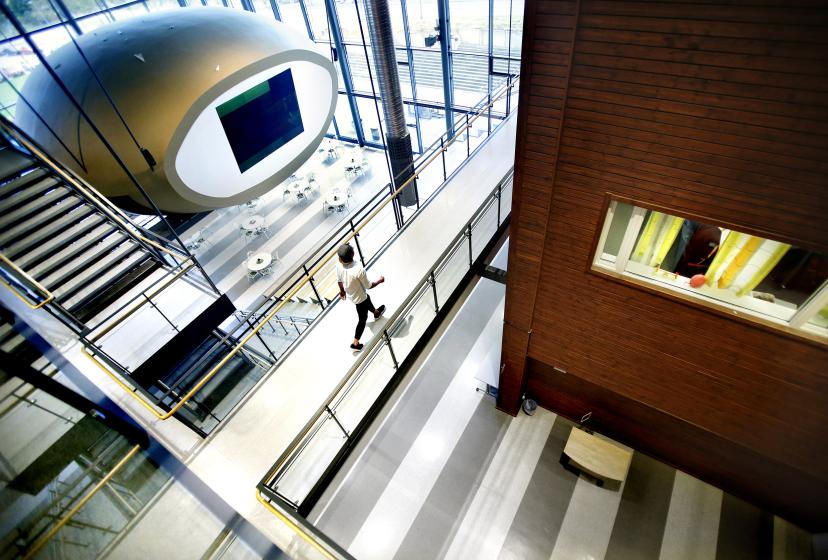News
-
2026-02-12
Elise's presentation won first prize
At the Swedish Society of Paper and Pulp Engineers' Ekmandagar on January 27, 2026, Elise Meurs, a doctoral student in chemical engineering at the Exact Industrial Research School, won the first prize in the prestigious presentation competition.
– The competition is conducted in Pecha Kucha format, a presentation format with 20 slides and only 20 seconds per slide, says Elise Meurs.
-
2026-02-06
New study provides unique insight into the work of registered nurses and nursing assistants in home healthcare
A new study offers an in-depth and uncommon insight into how registered nurses and nursing assistants work with fundamental care for older people within municipal home healthcare services. The study shows that care work is significantly more complex and multifaceted than what is often reflected in guidelines, schedules, and care plans.
“The study shows that everyday conditions have a major impact on care quality, and that fundamental care is more complex than what is often made visible in governing documents,” says Karin Sandberg, doctoral student in nursing at Karlstad University and one of the researchers behind the study.
-
2026-01-23
App May Reduce Fear of Childbirth Among First-Time Mothers
New research from Karlstad University shows that the effect is particularly noticeable among women who already during pregnancy experience strong anxiety about giving birth.
Expecting a first child can bring both anticipation and worry. Thoughts about pain, loss of control, and the unknown are, for many expectant mothers, a source of stress. Now, research from Karlstad University and Region Värmland shows that a digital support tool in the form of an app can make a difference, especially for first-time mothers who feel a pronounced fear of childbirth.
-
2026-01-22
Karlstad University is granted SEK 200,000 for a project supporting Ukraine
The Swedish Institute has granted funding for an educational package focused on inclusive vocational training for people with disabilities in Ukraine.
– We aim to formalize the collaboration between Karlstad University and NTU, the National Technical University Kharkiv Polytechnic Institute, says Jesper Haglund, Senior Lecturer in Physics Education. The need to develop inclusive vocational education for people with disabilities has been identified. Karlstad University has expertise in vocational education, mechanical engineering, and plastic injection molding. Ukrainian stakeholders in the project include non-governmental organizations and industries that may serve as future employers for participating students.
-
2025-12-19
The Digital Health Innovation Initiative in Värmland Enters a New Phase
DigitalWell Arena is now taking the next step in its long-term commitment to digital health innovation in Värmland. After several years focused on establishing a platform for research and collaboration, the work is now shifting towards the large-scale implementation and practical use of digital solutions.
Research at Karlstad University has been a central driving force behind DigitalWell Arena since its launch in 2019. By bringing together around 60 researchers from six research groups and disciplines such as computer science, nursing, psychology, service research and gender studies, the university has built an interdisciplinary research environment for digital health innovation.
-
2025-12-19
New Dissertation on High-Quality Steel
In a study, phD student Katerina Chantziara has investigated what causes steel fatigue and what makes it break. The aim of the research is to contribute to improved durability.
– I have studied different martensitic tool steels and examined what happens inside the material when it is subjected to stress, and what ultimately causes it to fracture, says Katerina Chantziara, PhD student in physics.


